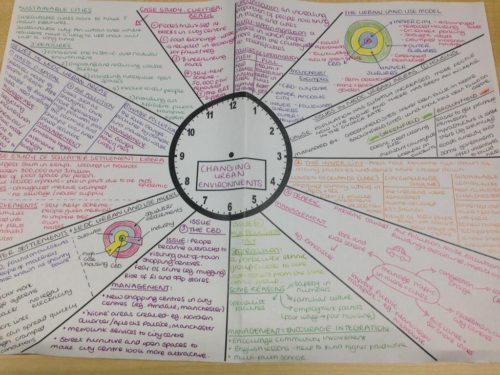
Much like History GCSEs, Geography can be a minefield if you are going round in circles. Instead, let our GCSE revision specialists at 121 Home Tutors point you in the right direction.
Geography largely boils down to human geography and physical geography – everything from the urban environment and global warming to natural phenomena such as deserts, rainforests and rivers.
So being interested in how the planet works is your initial driving force. Find that first!
Now to Geography revision. Where to start?
Find a Pathway through different units
As with History, Geography is broken down into different units. It’s worth spending time building up some flashcards and mind maps for the key units you are expected to write about in the exam itself. Create quiz cards to test yourself with.
A useful tactic is to create flashcards about case studies, breaking down information into: causes/reactions, key details, the human cost, impact on environment, the after effects.
Why not devise a revision clock to test how much you already know? A brilliant way to build revision resources too.
Master Map Skills
- Understand how Ordnance Survey maps work – including eastings and northings.
- Practise Atlas map skills such as Latitude and Longitude, including deciphering distances between two places.
YouTube or Oak Academy can be an excellent source of information for learning Geographical detail.
Get to Grips with Graphs and Photographs
Pick photos apart by learning landscape features, and how they are formed or destroyed – such as the impact of weathering and coastal erosion.
Reading graphs is a key Geography skill. During revision:
- Always refer to data on a graph
- Know the difference between bar and line charts,
- Practise extracting data from scatter charts and pie charts
Nail those High Mark Questions
Longer mark questions need strategy. Try this ADELE acronym:
A: Accurate Knowledge – know your facts and figs.
D: Detailed understanding. Do you truly get it?
E: Examples. Make sure you can refer to an example of coastal erosion, for instance.
L: Link sentences, weaving in terminology. For example, Additionally, Because of this etc..
E: Evaluate. Practise explaining your opinion.
Seek Revision Support to Keep on Track
With exam skills aplenty to boss, it can help to have a subject specialist tutor to steer you back on course if you’re taking the long route – or you’re completely lost.
Whether you’re in Manchester, Cheshire or anywhere on the planet, 121 Home Tutors can help.
Our trusty team of GCSE and A Level tutors can help you in a range of subjects. Just ask!
- Picture courtesy of TeachGeoBlog
Tags: coastal erosion, eastings and northings, environment, global warming, graphs, human geography, latitude, longitude, map skills, Ordnance survey maps, revision support, rivers, urban issues


